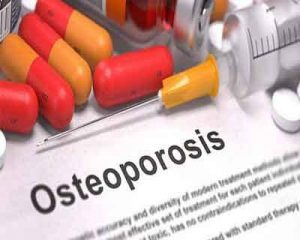- Home
- Editorial
- News
- Practice Guidelines
- Anesthesiology Guidelines
- Cancer Guidelines
- Cardiac Sciences Guidelines
- Critical Care Guidelines
- Dentistry Guidelines
- Dermatology Guidelines
- Diabetes and Endo Guidelines
- Diagnostics Guidelines
- ENT Guidelines
- Featured Practice Guidelines
- Gastroenterology Guidelines
- Geriatrics Guidelines
- Medicine Guidelines
- Nephrology Guidelines
- Neurosciences Guidelines
- Obs and Gynae Guidelines
- Ophthalmology Guidelines
- Orthopaedics Guidelines
- Paediatrics Guidelines
- Psychiatry Guidelines
- Pulmonology Guidelines
- Radiology Guidelines
- Surgery Guidelines
- Urology Guidelines
Osteoporosis drug , Alendronate reduces risk of MI, Stroke

Alendronate, a drug used for the treatment of osteoporosis and other bone disorders, was linked to reduced risk of stroke, heart attack, and cardiovascular death, according to a new study published in the Journal of Bone and Mineral Research.
The study was conducted by Chor‐Wing Sing, from The University of Hong Kong, Pokfulam, Hong Kong, and colleagues to investigate the risk of cardiovascular events (CVEs) with and without the use of alendronate in patients with hip fracture.
In the retrospective cohort study, patients newly diagnosed with hip fracture from 2005 through 2013 were followed until late 2016. Among 34,991 patients, 4602 (13%) received osteoporosis treatment during follow-up. The risks of cardiovascular mortality, myocardial infarction, and stroke between treatment groups were evaluated using conditional Cox regression stratified by match pairs. To examine the associations over time, outcomes were assessed at 1 year, 3 years, 5 years, and 10 years
Investigators found that:
- Alendronate was associated with 67% and 45% lower risks of one-year cardiovascular death and heart attack, respectively.
- It was associated with an 18% reduced risk of stroke within five years and a 17% reduced risk of stroke within 10 years.
- Protective effects were not evident for other classes of osteoporosis treatments.
"It is well established that there is a world-wide crisis in the treatment of osteoporosis, due to patients' awareness of the extremely rare side effects," said senior author Dr. Ching-Lung Cheung, of the University of Hong Kong. "Our findings show that alendronate is potentially cardioprotective in hip fracture patients.
Therefore, physicians should consider prescribing alendronate or other nitrogen-containing bisphosphonates to hip fracture patients soon after their fracture, and patients should also have good compliance with alendronate treatment, as this is not only good for your bones, but also your heart."
In addition to clinical management, the study also has important implications in the clinical trial design of anti-osteoporosis medications. The US Food and Drug Administration recently requested more data before reaching a decision on whether to approve the osteoporosis drug romosozumab, due to excess cardiovascular adverse events in the romosozumab arm compared with the alendronate arm.
"In light of these important deliberations, our results suggest that such differences in cardiovascular adverse events could be potentially related to a protective association of alendronate, rather than an increase in cardiovascular adverse events related to romosozumab use, said Dr. Cheung."
For further information click on the link: https://doi.org/10.1002/jbmr.3448

Disclaimer: This site is primarily intended for healthcare professionals. Any content/information on this website does not replace the advice of medical and/or health professionals and should not be construed as medical/diagnostic advice/endorsement or prescription. Use of this site is subject to our terms of use, privacy policy, advertisement policy. © 2020 Minerva Medical Treatment Pvt Ltd